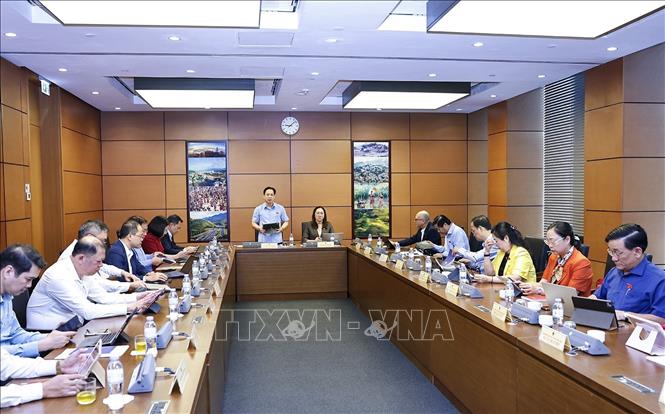
Encouraging private investment in aviation infrastructure
Commenting on the draft Law on Civil Aviation (amended), President Luong Cuong stated that amending the Law not only contributes to perfecting the legal system but also serves the overall socio -economic development goals of the country.
Regarding airport planning, President Luong Cuong emphasized the need for thorough research, not only stopping at airport construction but also taking into account exploitation and operation to ensure the most effective. Airport planning must be linked to a synchronous transport system, including railways, roads and sea routes, ensuring connectivity and convenience for passengers and transport activities. Policy planning must be truly steadfast, based on scientific foundations and practical needs so that planning ensures the highest efficiency, serving the common interests of the nation.
Regarding the relationship between airports, airlines and passengers, the President said that it is necessary to legalize and clearly define the responsibilities and rights of each party in case of flight delays, ensuring harmony of interests between businesses and people.
Giving comments at the Group on this Law project, National Assembly Chairman Tran Thanh Man stated that the draft Law consists of 11 chapters with 109 articles, significantly reduced (33% of content) compared to the current law, abolishing 9/24 groups of procedures, but "it is still long, and needs to continue to be reviewed to reduce it in the direction of innovation in thinking about law making".
According to the Chairman of the National Assembly, civil aviation is a complex and difficult field, so it cannot be fully regulated in the Law, but some contents must be regulated in guiding documents. Therefore, issues within the National Assembly's regulatory framework will be included in the Law; the rest will be assigned to the Government to issue a decree with specific instructions. The Ministry of Construction will issue a management circular.
“In particular, the draft Law needs to add breakthrough regulations, encourage private investment and public-private partnership, especially for local airports and specialized airports. Currently, the State still invests mainly in essential infrastructure, leading to a budget burden, so there needs to be regulations and preferential mechanisms on tax, land, and quick approval procedures for domestic and foreign investors; at the same time, ensuring equality between airlines in access to flights and flight services. The Government should assign regulations on criteria for selecting investors, but there needs to be supervision provisions to avoid monopoly,” the National Assembly Chairman suggested.
According to current data, the country currently has 22 airports (10 international airports, 12 domestic airports), but investment progress is still slow, reaching only about 113,558 billion VND in the period 2010 - 2020. The draft Law has inherited the regulation that airport operators are entitled to invest, but needs to be expanded to mobilize social resources, in accordance with Resolution No. 29-NQ/TW on continuing to promote industrialization and modernization of the country until 2030, with a vision to 2045; otherwise, the aviation industry will find it difficult to achieve the goal of having 33 airports by 2050 - the Chairman of the National Assembly said.
Emphasizing the need for decentralization, delegation of authority and simplification of administrative procedures, the National Assembly Chairman stated that investors are very interested in streamlining procedures. The draft Law has provisions for decentralization, but it needs to be more thorough, assigning the authority to approve detailed airport planning to the provincial People's Committee, reducing the time for granting flight permits from 10 days to 5 days or less; completely abolishing compulsory registration of aircraft ownership for Vietnamese organizations, switching to a voluntary mechanism to reduce administrative burden.
Regarding safety, security and airspace management, the National Assembly Chairman said it is necessary to supplement regulations requiring a safety management system for all enterprises designing and manufacturing aircraft and integrating artificial intelligence (AI) in flight monitoring; at the same time, it is necessary to clarify the mechanism for sharing data to serve airspace management, especially in the context of strong development of unmanned aerial vehicles (UAVs). The State needs to have a pilot framework for strict management, avoiding affecting civil aviation safety because even a small collision can cause an accident...
Regarding the issue of mobilizing private investment, delegate Le Quang Tung (Can Tho) said that in order to further socialize investment in aviation infrastructure, especially for airports that have previously been invested by the State, the Civil Aviation Law (amended) can suggest and clarify the relationship with the Law on Management and Use of Public Assets, especially for airport infrastructure, to create more convenience.
At the same time, delegate Le Quang Tung suggested considering adding a more flexible mechanism in mobilizing investment in airport infrastructure, especially for existing airports, to facilitate the socialization process. "Otherwise, in the end, investment will still return to the State to invest capital, and it will be very difficult for the private sector to participate," delegate Le Quang Tung said.
Pointing out some current problems in the aviation industry, delegate Le Huu Tri (Khanh Hoa) proposed that the amended Law should have specific regulations to overcome the shortcomings of "too many airports" and unreasonable planning; there should be more specific international airport standards and tighten aviation discipline. "This will create a healthy competitive environment in terms of price and service quality, thereby promoting the overall development of the industry," the delegate said.
Sharing the same view, delegate Dang Thi My Huong (Khanh Hoa) suggested paying more attention to legalizing regulations on passenger rights and improving the quality of aviation services because "protecting passengers is protecting national prestige and enhancing Vietnam's image"; at the same time clearly defining the right to information, support, and compensation in cases of flight delays, cancellations, lost luggage, etc.; legalizing the responsibility to publicly disclose ticket prices, surcharges, and conditions for refunds, avoiding hidden fees.
"Accelerate talent attraction"
Giving opinions in the group on the draft Law on Public Employees (amended), delegate Le Thi Thanh Lam (Can Tho) agreed with the conversion of the method of managing public employees according to job positions as stipulated in the draft Law. This is consistent with the current trend of public sector reform, meeting the requirements of strong innovation in methods of recruitment, assessment, planning, training, fostering, arrangement and use of cadres, civil servants and public employees in the political system. From there, it contributes to creating a legal basis for implementing salary payment according to job positions in the spirit of Resolution No. 27-NQ/TW on reforming salary policies for cadres, civil servants, public employees, armed forces and employees in enterprises; ensuring consistency and consistency with the method of managing cadres and civil servants stipulated in the Law on Cadres and Civil Servants.
Regarding the method of recruiting civil servants, delegate Le Thi Thanh Lam said that paving the way for direct recruitment of talented experts and civil servants without traditional examinations is a necessary step to accelerate talent attraction. However, according to the delegate, if there is a lack of clear regulations on selection criteria, transparency of records and independent inspection, it can easily lead to risks, "tailoring" positions, bias and sentiment in public recruitment - reducing public trust and the quality of State human resources. Therefore, the delegate suggested that flexible recruitment should be linked to the principles of transparency, publicity, clear post-inspection regulations and the responsibilities of unit heads must be clearly defined.
Delegate Nguyen Thi Viet Nga (Hai Phong) said it is necessary to clearly define the scope of allowed and not allowed participation in business activities of civil servants. "For example, civil servants in the fields of education, health, science and technology can participate in scientific enterprises and technology transfer, but should not arbitrarily expand to fields unrelated to their expertise," the delegate said.
In addition, a clear mechanism for controlling conflicts of interest should be established to avoid cases where civil servants take advantage of their positions, internal information or state resources to gain benefits while participating in enterprises. "Along with that, there should be guidance on responsibilities, obligations and income regimes when civil servants participate in enterprises or sign contracts outside the unit. It must be ensured that civil servants still fully complete their tasks at the agency, without affecting the quality of public service," delegate Viet Nga emphasized.
According to delegate Viet Nga, for universities and public scientific institutions, the draft Law should issue specific incentive mechanisms, such as allowing the establishment of spin-off enterprises (science and technology enterprises in universities, research institutes, etc.), internal science and technology enterprises with transparent financial and administrative mechanisms.
Source: https://baotintuc.vn/thoi-su/khuyen-khich-dau-tu-xa-hoi-hoa-ha-tang-hang-khong-20251022140657206.htm








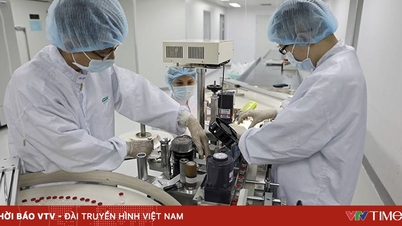

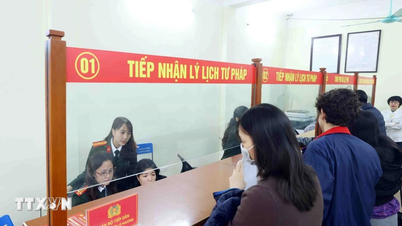

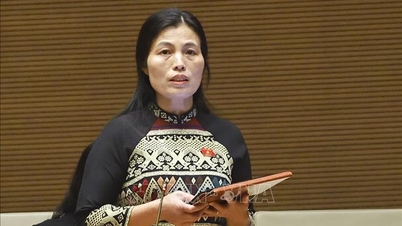
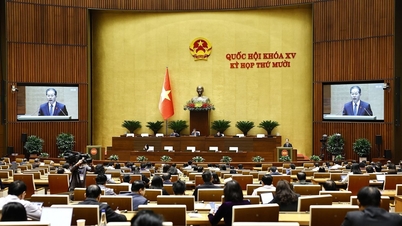
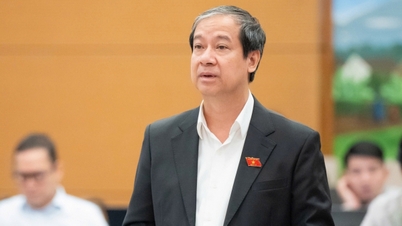

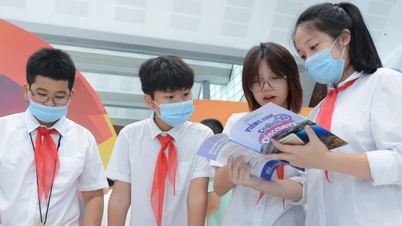

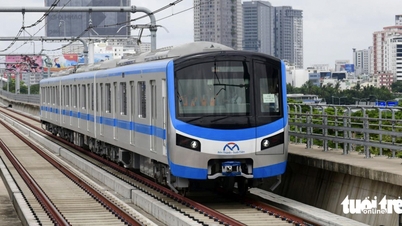


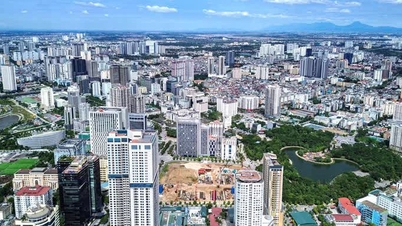
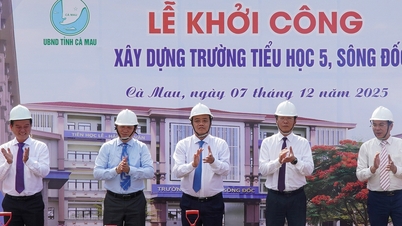
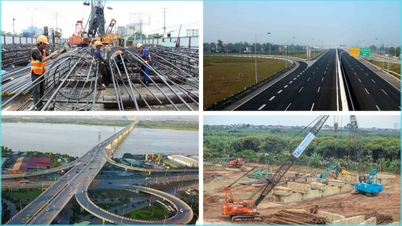

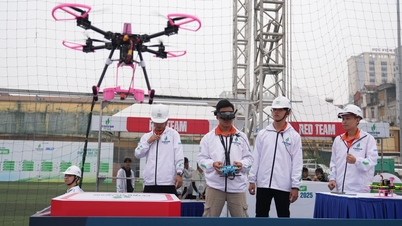






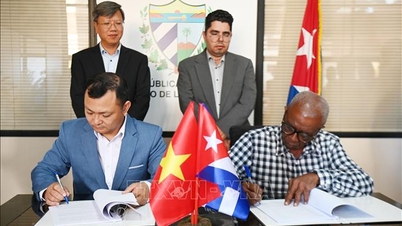


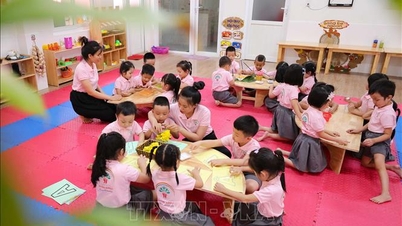
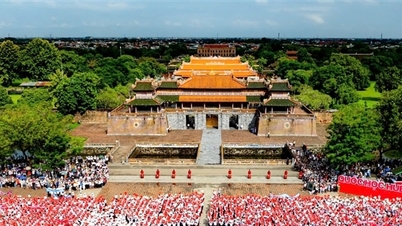

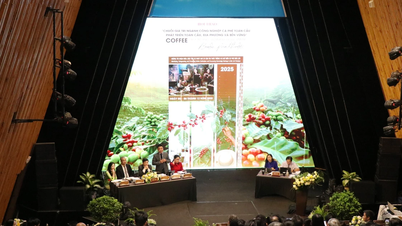








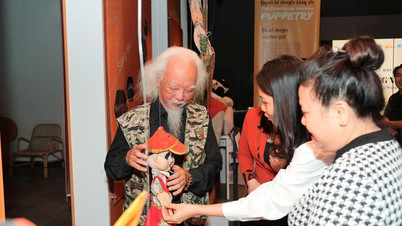

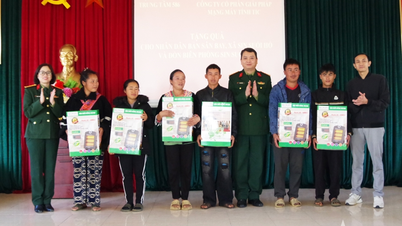




























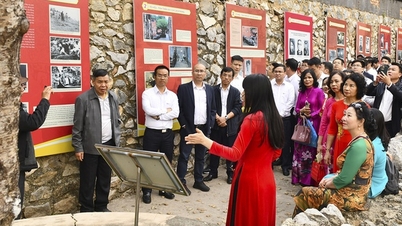



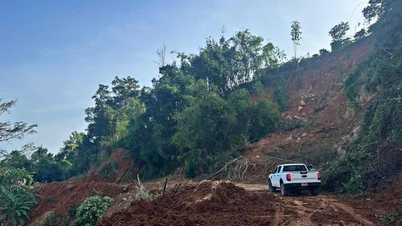



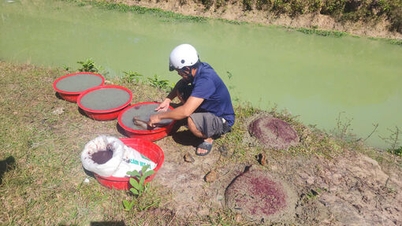

















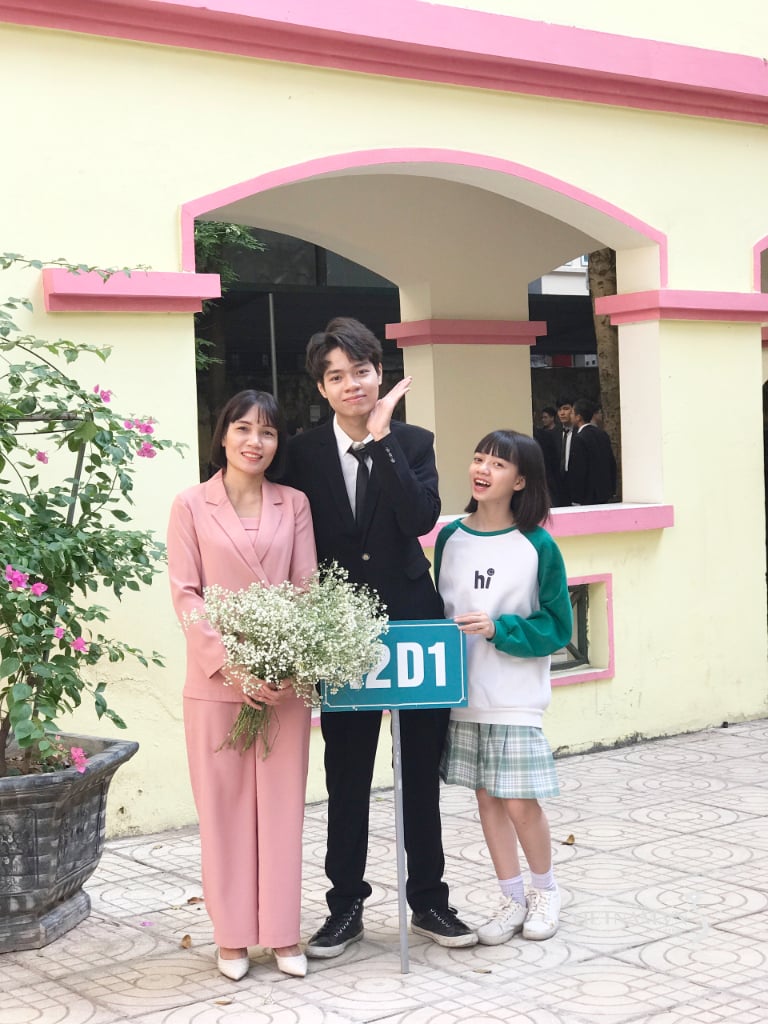






Comment (0)